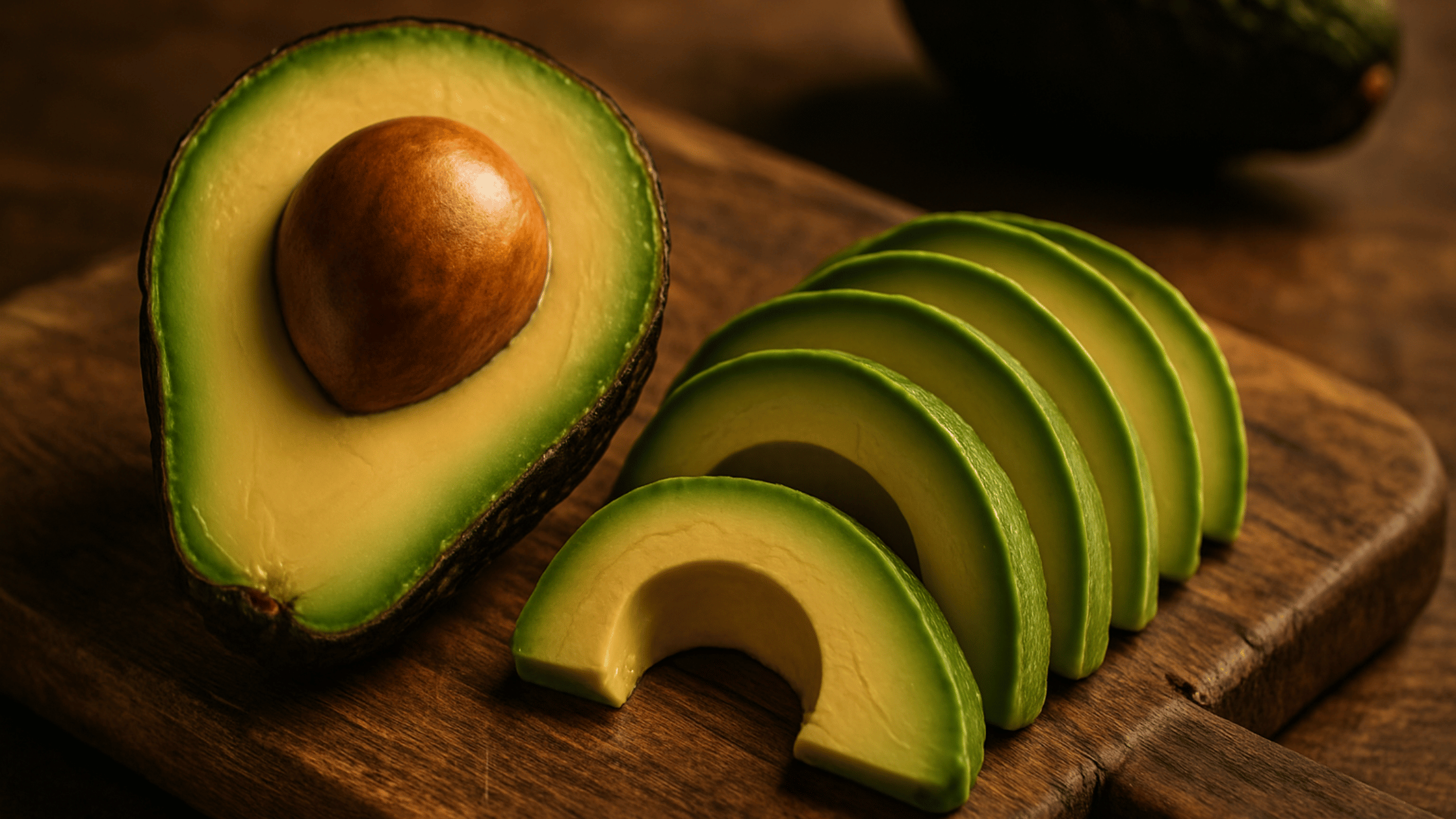Nutrition facts for avocado reveal that this creamy, green fruit offers an exceptional profile of heart-healthy fats, fiber, and essential micronutrients. Whether you’re following a keto, Mediterranean, or plant-based diet, understanding avocado’s nutrition empowers you to use it most effectively in your meals. From caloric impact to health benefits and safe preparation, every aspect matters.
If you’re also interested in learning about [nutrition facts for cucumber], check out our full guide.
Nutrition Facts for Cucumber: Hydration, Health Benefits, and Weight Loss Value

Nutrition Facts for Avocado: What 100 Grams Really Contains
Examining a standard 100-gram serving of Hass avocado shows just how nutrient-intensive this fruit is:
- Calories: 160 kcal
- Total Fat: 14.7 g
- Carbohydrates: 8.5 g (6.7 g fiber, 0.7 g natural sugars)
- Protein: 2 g
These values make avocado one of the lower-sugar, lower-carb fruits with substantial healthy fats and fiber, supporting diets across the spectrum—from low-carb to high-health-conscious.
Fat Profile: Why the Nutrition Facts for Avocado Stand Out
The dominant nutrient in avocado is its fat content—and it’s the beneficial kind. Avocados are exceptionally rich in monounsaturated fats, particularly oleic acid, which contributes to cardiovascular health by reducing LDL (“bad”) cholesterol and increasing HDL (“good”) cholesterol.
A typical avocado contains about 15 grams of monounsaturated fat, alongside smaller amounts of polyunsaturated and saturated fats. This favorable ratio supports heart health, inflammation control, and the absorption of fat-soluble vitamins like A, D, E, and K.
Fiber in Avocado: Digestive Support & Satiety
A standout feature in the nutrition facts for avocado is its high fiber content. With around 6.7 grams per 100 grams, nearly 80% of avocados’ carbohydrates come from fiber—not sugar.
This fiber mix—soluble and insoluble—supports digestion, promotes fullness, and aids in cholesterol management. It also contributes to a balanced gut microbiome, making avocado an excellent addition to any diet for digestive health and appetite regulation.
Micronutrients: What the Nutrition Facts for Avocado Deliver Beyond Fats and Fiber
Avocados are packed with essential vitamins and minerals:
- Potassium: Supports heart rhythm, fluid balance, and muscle function
- Folate: Vital for cell division and DNA synthesis, especially during pregnancy
- Vitamin K: Crucial for blood clotting and bone health
- Vitamin E: A fat-soluble antioxidant that protects cell membranes
- Vitamin C: Boosts immune function and collagen production
- Vitamin B6: Supports brain health and energy metabolism
- Magnesium: Aids muscle relaxation, nerve function, and energy production
Avocados also contain carotenoids like lutein and zeaxanthin, which benefit eye and skin health.
Health Benefits: What Nutrition Facts for Avocado Mean for Your Body
1. Heart Health
Avocados help reduce LDL cholesterol, increase HDL cholesterol, and regulate blood pressure—all of which lower the risk of heart disease.
2. Weight Management
Despite being calorie-dense, the fat and fiber in avocados enhance satiety, helping reduce overall food intake and promoting fat loss when part of a calorie-controlled diet.
3. Blood Sugar Regulation
Low in sugar and high in fiber, avocados help stabilize blood sugar and improve insulin sensitivity, making them ideal for people managing diabetes or insulin resistance.
4. Eye and Skin Support
Rich in lutein and zeaxanthin, avocados support eye health by protecting the retina from damage. Their vitamin E and monounsaturated fats also improve skin elasticity and hydration.
5. Gut Health
Avocado’s fiber helps feed beneficial gut bacteria and promotes regular bowel movements, making it excellent for long-term digestive wellness.
Special Diet Compatibility: Where the Nutrition Facts for Avocado Shine
- Keto & Low-Carb: With minimal net carbs and high fat, avocado is ideal for these plans.
- Vegan & Plant-Based: Avocados supply healthy fat and key nutrients often lacking in meat-free diets.
- Mediterranean & Heart-Healthy Diets: Avocado replaces unhealthy fats and supports cardiovascular goals.
- Whole30 & Paleo: Its unprocessed, nutrient-dense nature fits clean-eating frameworks perfectly.
Allergies & Precautions: Not Everyone Can Benefit
Some people may experience mild allergic reactions to avocado, especially those with latex allergies. Symptoms include oral itching or swelling. Additionally, due to avocados’ high potassium content, individuals with kidney disease should monitor their intake with the guidance of their healthcare provider.
Moderation is key—even with healthy foods. Overeating avocados could contribute to excess calorie consumption, particularly when combined with other high-fat foods.
Best Storage and Preparation Practices for Maximizing Nutrition
- Ripen avocados at room temperature; refrigerate once ripe.
- Cut avocados should be kept in airtight containers, preferably with lemon or lime juice to prevent browning.
- Avoid cooking at high heat, which can degrade sensitive nutrients like vitamin C and carotenoids.
- Use raw in salads, smoothies, spreads, or as a topping for bowls and eggs.
Frequently Asked Questions (FAQs)
Q: How many calories are in a whole avocado?
A medium avocado typically contains about 240–250 calories.
Q: Is it healthy to eat avocado every day?
Yes, eating half to one avocado per day can support heart health, weight control, and nutrient intake.
Q: Can avocado help with weight loss?
Yes, high fiber and healthy fats help control appetite and reduce overeating.
Q: Is avocado a good option for diabetics?
Absolutely. Avocados have a low glycemic index, which helps stabilize blood sugar levels.
Q: What’s the best way to store cut avocado?
Keep it in an airtight container with the pit and a squeeze of citrus juice to reduce browning.
Q: Are all avocados equally nutritious?
Hass avocados are the most nutrient-dense variety. Other varieties are lower in fat but still contain key nutrients.
Conclusion: Why Nutrition Facts for Avocado Elevate It to Superfood Status
The nutrition facts for avocado show that this fruit is far more than a healthy fat source. Its combination of fiber, antioxidants, essential vitamins, and heart-protective fats makes it one of the most versatile and beneficial foods you can include in your diet.
Avocados promote heart health, weight balance, metabolic stability, and overall wellness—all in a delicious, satisfying package. Whether spread on toast or blended into smoothies, this fruit earns its place as a daily dietary staple.







